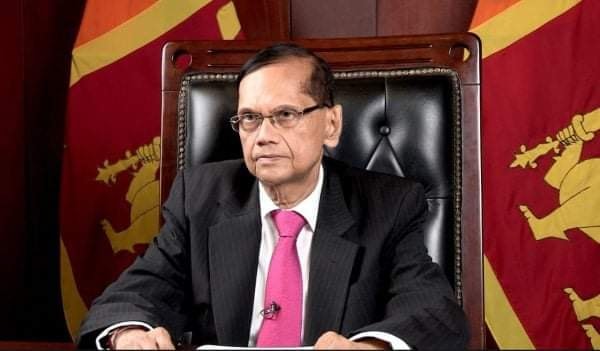![]()
People for Equality and Relief in Lanka (PEARL) has welcomed the opening remarks of UN High Commissioner Michelle Bachelet at the opening of the 48th session of the UN Human Rights Councils and urged the international community to heed her recommendations to pursue accountability for Sri Lankan war crimes and rebuild the confidence of Tamil victim communities.
The High Commissioner’s statement stressed the continued deteroriartion of human rights in Sri Lanka and noted that surveillance, intimidation and judicial harassment of human rights defenders, journalists and families of the disappeared has not only continued, but has broadened to a wider spectrum of students, academics, medical professionals and religious leaders critical of government policies."
This she notes is indicative of the “corrosive impact that militarisation and the lack of accountability continue to have on fundamental rights, civic space, democratic institutions, social cohesion and sustainable development."
PEARL emphasised that this increased harassment has disproportionately affected Tamil-speaking communities in the North-East.
Eroding faith in the rule of law
.jpg)
PEARL also noted that over the decades the confidence of the Tamil people in the “rule of law and judicial processes” has eroded over the decades. This is due to the efforts of an ethnocratic state “to protect war criminals, which has not only entrenched impunity for mass atroctities but even encouraged perpetrators”.
They further emphasis that “expected accountabiltiy from any state-led mechanism such as the Office of Missing Persons is futile”. Doubt over such institutions has increased over the years due to its disregards for request of Tamil victim communities and the overt political appointments.
Human Rights Watch writes that Rajapaksa’s recent appointments to the office have gravely undermined its independence. Appointments include Jayantha Wickramaratne, a former policeman accused of destroying evidence in the murder of journalist Lasantha Wickrematunge, and Upali Abeyrathne, who led last year’s commission seeking to exonerate alleged perpetrators.
The High Commissioner’s statement further highlighted the ongoing harassment of families of the disappeared. An estimated 100,000 people have been forcibly disappeared, the vast majority of which are Tamil.
False promises

PEARL further cast doubt over Sri Lanka’s pledged commitment noting that the state is willing to make such commitments simply “as a way to ease international pressure without truly addressing its crimes, including using its dire economic state as a shield to excuse its inaction”.
“It is paramount that Sri Lanka’s commitment to accountability is judged by the strength of its actions, rather than its words”, PEARL maintains.
The duplicity of Sri Lankan government was further emphasised as they note that in January the government rejected the High Commissioner’s report and findings. In addition, Sri Lanka’s Foreign Minster, G.L. Peiris opening claimed that an international mechanism was unnecessary, despite over 12 years of failure to deliver on transitional justice.
International accountability
PEARL stressed the need for the international community, and in particular the Core Group (UK, Canada, Germany, Montenegro, and North Macedonia), to support international accountability efforts. They further highlighted the High Commissioner’s recommendations that member states can take “steps towards the referral of the situation in Sri Lanka to the International Criminal Court” and investigate and prosecute alleged Sri Lankan perpetrators “before their own national courts”.
This call for international accountability has been supported by Tamil victim communities, Tamil parliamentarians, and by international human rights groups.
PEARL further added that “accountability is a precondition to human rights, reconciliation, and sustainable peace in Sri Lanka”.
“Unless the root causes of conflict and grievances are addressed through accountability and a long-term political solution, the situation in Sri Lanka risks spiralling further into gross human rights violations, and potentially mass violence”.
Read more here.
We need your support
Sri Lanka is one of the most dangerous places in the world to be a journalist. Tamil journalists are particularly at threat, with at least 41 media workers known to have been killed by the Sri Lankan state or its paramilitaries during and after the armed conflict.
Despite the risks, our team on the ground remain committed to providing detailed and accurate reporting of developments in the Tamil homeland, across the island and around the world, as well as providing expert analysis and insight from the Tamil point of view
We need your support in keeping our journalism going. Support our work today.
For more ways to donate visit https://donate.tamilguardian.com.

